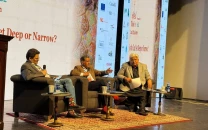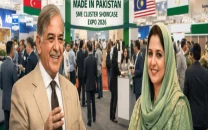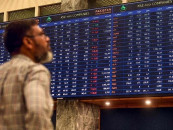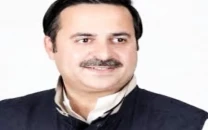Budgeting with enthusiasm
Finance minister has presented a pro-market budget, but its macroeconomic framework will be a hard sell for the IFIs.

pervez.tahir@tribune.com.pk
One had hoped that the budget would focus on reviving growth (mainly by softening the energy constraint) and balancing of books in the first year, along with a prioritised selection from amongst the political promises made in the elections. Instead, the PML-N has chosen to go the whole hog. The cuts in current expenditure still leave a revenue deficit of 1.2 per cent of GDP. With the addition of the proposed jump in the development budget, the PML-N government will be the first in the history of the country to start with a working fiscal deficit of 6.3 per cent, financed by costly domestic borrowing. It is likely to end up with a much higher deficit, given the piecemeal nature of the tax measures announced. Reliance on withholding taxes has been increased and specific and discretionary measures have been proposed rather than reforming the tax regime. In our tax culture, reducing the corporate tax rate and increasing the maximum rate for non-corporate businesses may not encourage corporatisation, but it will certainly reduce revenue. Measures to bring traders in the tax net are laudable. If the PML-N can’t negotiate with the traders, nobody can. There is, let it be noted, no clear statement in the budget speech regarding reformed general sales tax.
A concerted effort, as promised, can end circular debt in the short run. The point is to address the underlying causes to see a permanent end to it. Reforms announced to improve the performance of the mismanaged public enterprises, especially railways, require political will for implementation. Much more needs to be done than granting autonomy and placing the right man or woman on the right job. Mr Dar himself mentioned how an autonomous State Bank was unable to act on its own law to prevent the government from excessive borrowing.
I have been arguing in these columns that Pakistan does not need to rush to the International Monetary Fund. The issue is to convert the present net outflow of resources into a net inflow. Immediately, the 3G licences can be auctioned and the Etisalat asked to pay what is due from it. The budget promises as much. In parallel with austerity imposed on the current budget, nothing except the higher taxation of luxury vehicles has been announced on the import side. Privatisation and access to international capital market have also been mentioned. The finance minister expects to “soon sort our issues with International Financial Institutions (IFIs)” to resume normal flows. True, the finance minister has presented a pro-market budget, but its macroeconomic framework will be a hard sell for the IFIs, unless the soft-peddling on the Iran-Pakistan gas pipeline is part of a quid pro quo. After all, the economics of kashkol-breaking is not just a matter of showing enthusiasm for it.
Published in The Express Tribune, June 14th, 2013.
Like Opinion & Editorial on Facebook, follow @ETOpEd on Twitter to receive all updates on all our daily pieces.



















COMMENTS
Comments are moderated and generally will be posted if they are on-topic and not abusive.
For more information, please see our Comments FAQ